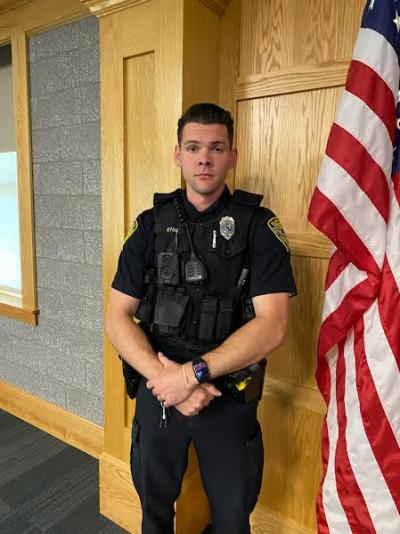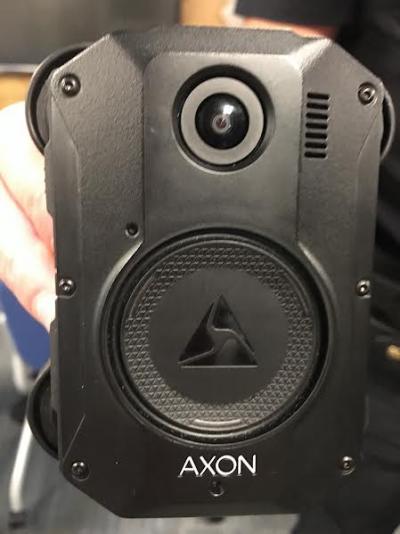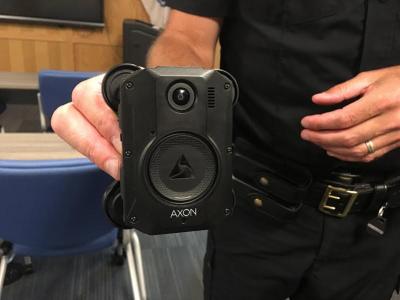Police using body cameras for month-long trial
Two Dartmouth police officers are sporting new devices these days: Body cameras.
The department is testing body cameras for a month as a trial run for potential permanent use, said Sgt. Joseph Rapoza, who is overseeing the trial.
The officers, who were randomly selected, are wearing the devices on their uniforms throughout their shifts to become familiar with how they work, he said, and to provide feedback when the trial month ends.
The cameras record all activities that occur while the officers are wearing them.
Using body cams will help the department, Rapoza said, by providing a full picture of an incident, from the time an officer arrives to when he or she clears the scene.
Having footage of entire incidents “tells the whole story,’’ he said. “This gives people a front-row view of what we deal with.’’
In an era when video cameras are prevalent, people often videotape incidents that police respond to, Rapoza said, but those images may lack context.
“Sometimes you see a snippet of a partial incident,’’ he said. With camera videos of the entire incident, “there’s less room for speculation.’’
Videos can also help the department “dismiss claims that are frivolous,’’ he said.
Officers can shut off their cameras during sensitive situations, such as sexual assault responses or certain medical calls, Rapoza said, but that would be a rare occurrence and a reason for shutting it down would have to be specified.
The cameras are off when officers are doing routine work in the station and when they are in personal situations such as a private lunch break. But the cameras are otherwise on for the vast majority of their shifts, he said.
The two officers who are wearing the cameras have so far had positive experiences, he said.
“This seems like it’s a good investment,’’ Rapoza said. “It’s going to reduce our liability.’’
Videos from the cameras are uploaded into the cloud and stored by the company that provides the body cameras.
The department is currently testing body cameras made by Axon. Rapoza hopes the department will also try equipment from a second vendor before making a final decision.
Once the trial month ends, Rapoza will write up a report to Police Chief Brian Levesque detailing his overall observations on how the trial went.
A final decision on whether to purchase the cameras and from which company will be made by the chief in conjunction with the Select Board.
The exact cost of body cameras would depend on what options are selected, Rapoza said.
Dartmouth will apply for a portion of the $4 million in state grant money offered for communities to fund body cameras, he said.















